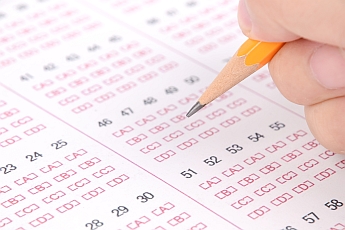Should I take both the ACT and SAT? Yes!
For about 50 years, the SAT dominated the ACT as the go-to standardized test for high schoolers. This held true until 2012, when the ACT finally pulled ahead by about 1,500 test-takers. The tests have ranked neck-and-neck in popularity since then, and students have had to ask some serious questions: Which test to take? Better yet, should I take both the ACT and SAT? We’ve always counseled our students to take one test or the other based on skills, high school performance, college goals, and other such criteria. As an agency that has provided Roswell SAT tutoring since 2002, we have been with the SAT and ACT for more than a decade. For the first time we are advising that all students take both tests this year.
This isn’t as hard as it sounds; the new SAT is actually starting to look a lot like the ACT. Obscure vocabulary words have been tossed; math focuses more on basic algebra; and reading passages are at a lower reading level.
The University of Georgia seconds this advice on its Admissions Criteria web page. “Though historically we have reviewed more SAT scores from applicants, we do not have a preference between the ACT and SAT. In fact, we often recommend that students attempt each test at least once.”
Problems With the New SAT
One reasons we are making this recommendation is that the newly designed SAT might have issues with scoring. Problems already emerged last October, when students taking the PSAT didn’t get their scores until January, a month later than they should have. In communication with the Washington Post, the College Board blamed this lag on technical problems. The newly launched online scoring system, which had been redone as part of the new SAT rollout, was wrought with bugs typical of web launches. (Remember healthcare.gov?) This scoring debacle casts an ominous shadow over the redesigned SAT. Will students taking the new test get their scores late?
This delay in releasing scores did more than wrack the nerves of students, parents, and counselors. Until they got their PSAT scores, juniors couldn’t use their scores to hone in on their weaknesses in studying for the SAT. And counselors had less time to help them decide which colleges to apply for.
A similar issue faces seniors taking the new SAT in March of this year. Forbes reports that these scores will not be released until May, doubling the typical three-week turnaround. Those taking the test in March and again in May won’t have their scores in time to decide where to focus their studying efforts the second time around.
And there’s another problem with the new SAT scores: how will colleges interpret them? As the Forbes writer puts it, “It will take more time for admissions committees to figure out what the new SAT is telling them about students, but they will already have a clear idea of what the ACT represents.”
So…Should I Take Both the ACT and SAT?
With all of these potential problems, you may be wondering why to bother with the new SAT at all. Well, one reason is that this SAT bears so many similarities to the ACT that you can essentially study for both at the same time. Simply study for the ACT using ACT study guides and tutors, brush up on pertinent facts about the SAT, sign up for both tests, and you’re done.
Another reason is that many admissions boards, including UGA and Georgia Tech, recommend it. As GT states on its Admissions webpage, “Take both tests! Many students feel more comfortable with one testing format over the other, resulting in higher scores.”
Not only do we second this advice, but we think you can read between the lines and find a possible preference for students with the moxie to take both tests.
And then there’s another subtle, yet important detail to consider: some colleges “superscore” the SAT but not the ACT. (This is to say that if you take the SAT more than once, you can just send your highest section scores.) If your top school, such as NYU, institutes this policy, taking the SAT twice in addition to taking the ACT may best ensure top scores.
For private, in-home SAT and ACT tutoring in Atlanta, contact In-Home Tutors at 770-645-8750 today. Your first session is guaranteed!
